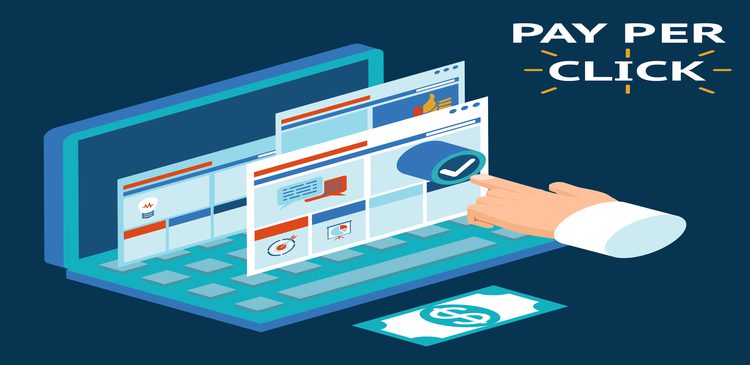

What Exactly Is Pay-Per-Click Marketing?
Let’s first address the query, “What is pay-per-click advertising?” before delving into how PPC might support other digital marketing initiatives. You pay for each click while using PPC. On the basis of specific keywords, you post an advertisement with a search engine like Google. Your budget will determine how much you spend on the advertisement.
PPC, or pay-per-click, is a term used in digital marketing. Every time a user clicks on an ad, advertisers are charged a set cost. Marketers may consider purchasing visits to their website in place of organic visits if they want to improve traffic.
As a result, rather than paying for predicted impressions, here you pay for all the traffic that these advertisements produce, making them an excellent option since the firm has control over their budget and there is nothing to lose.
Google Ads, Facebook Ads, and Microsoft Ads are a few of the well-known PPC ad networks. There are several uses for PPC advertisements.
By investing more money than you would normally, you can increase the location of your advertisement. If a user clicks on your advertisement after conducting a search using the keywords you’ve selected, you will be charged for each click. “Pay-per-click” is the term for this.
Know the Difference Between PPC and Adwords?
Google’s AdWords is the most popular PPC platform, despite the fact that it is accessible through a variety of methods. PPC and AdWordsare the same thing; yet, because Google dominates the search engine business, most people mean AdWords when they say PPC. PPC might involve paying for clicks on other search engines or through other methods in addition to AdWords.
We make PPC Strengthen Other Direct Marketing Initiatives
PPC can be used to test and improve landing pages. To test headlines, layouts, content, calls to action, photography, and other elements, you can direct traffic to two alternative landing pages. When you find a lead, you then use that as your landing page.
Try out the headlines, deals, and calls to action. Following that, you may apply the lessons you’ve learned to all of your other digital marketing efforts, such as social media marketing, email marketing, display ads, and even adjusting a blog post’s or tweet’s headline.
Geotargeting, localization, and test audiences. Does a headline that works better in one region of the world than another work better in another? PPC can help you find out, and you can utilise the information in your other marketing strategies.
Take advantage of occurrences as soon as possible. Let’s imagine your brand can profit from an occurrence that occurs in the press or the entertainment industry. With PPC, you may quickly launch pertinent content to capitalise on that occasion or fad. Then, perform every type of testing mentioned above to see if you can learn anything that you can use in other situations.
PPC is not just a strong tool but also adaptable in a way that other channels are not. PPC may be easily enabled or disabled, and your bid amount can be changed. You control the water flow by holding the handle, just like a tap. Due to this, PPC stands out from other marketing strategies.
